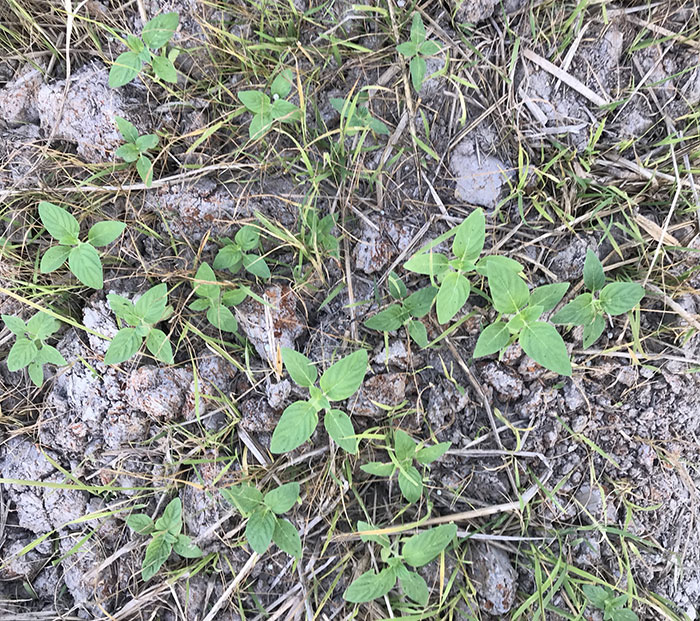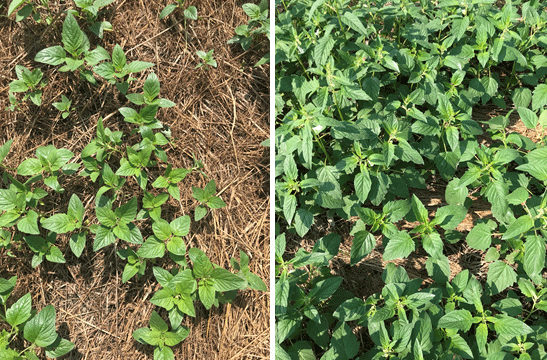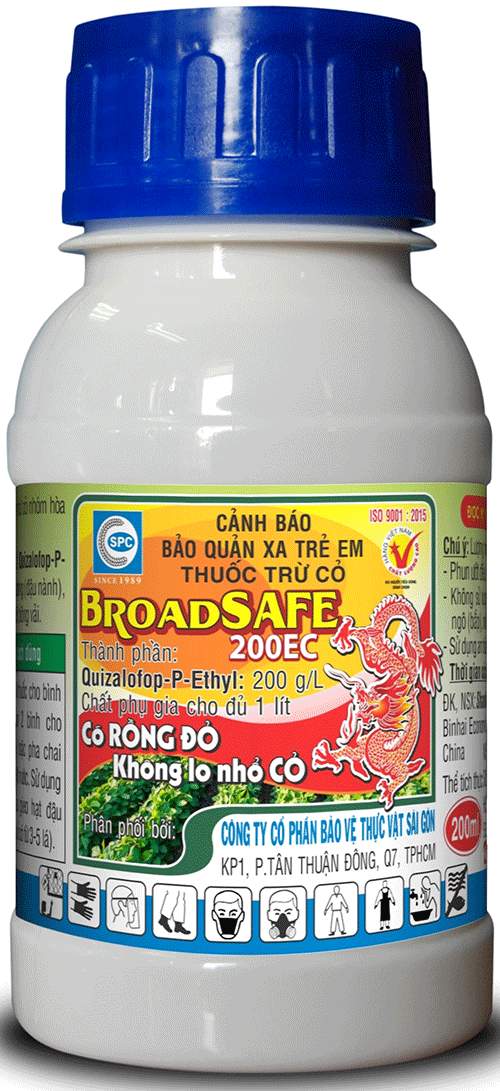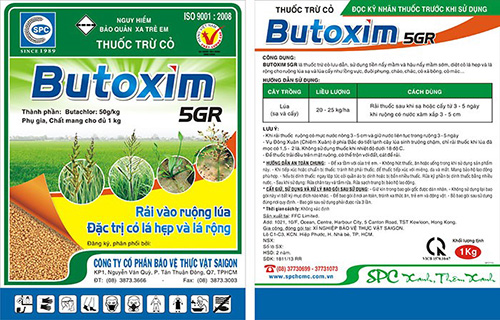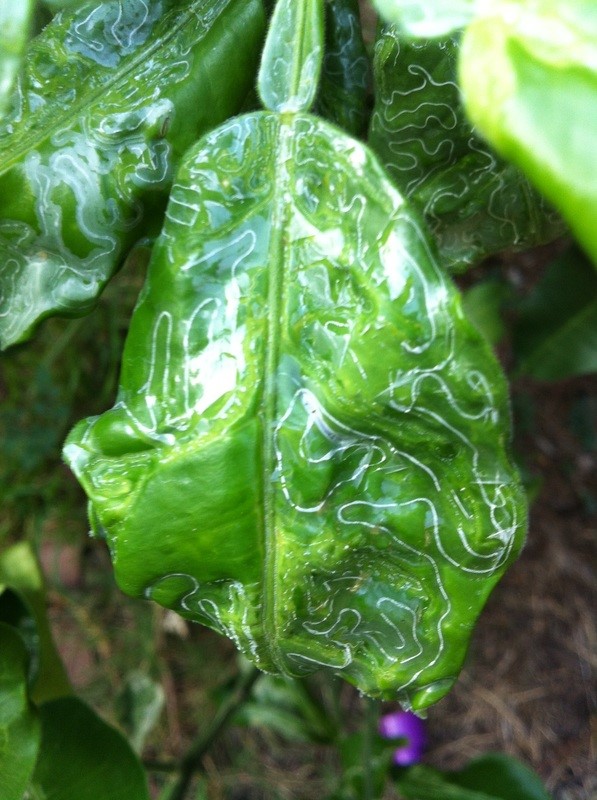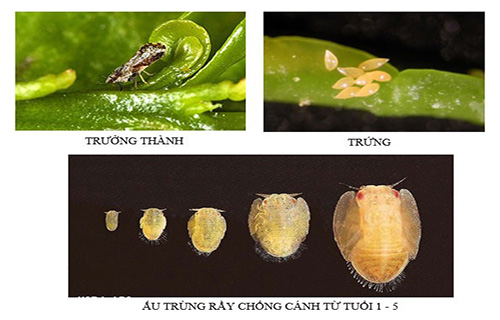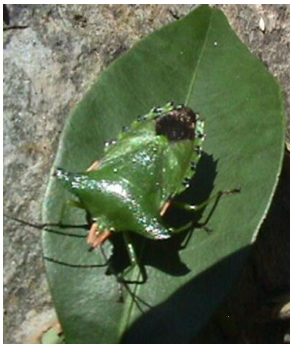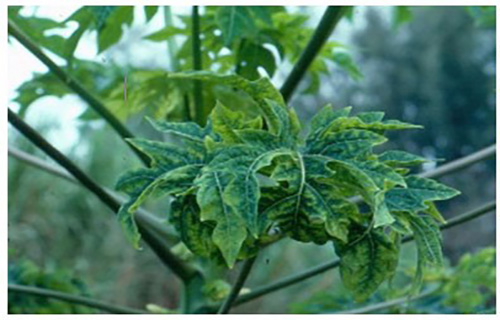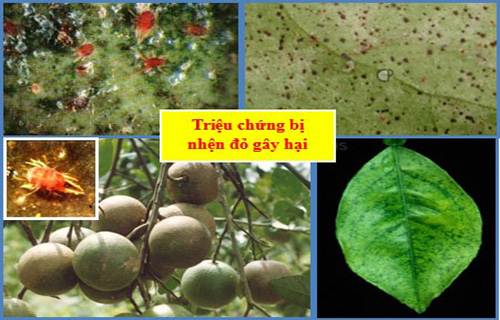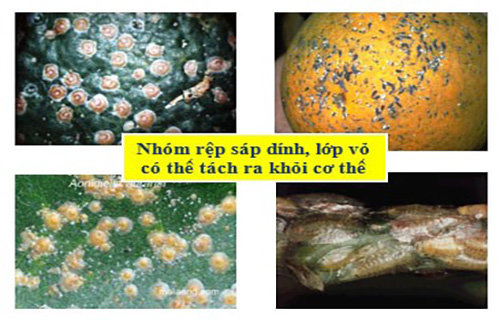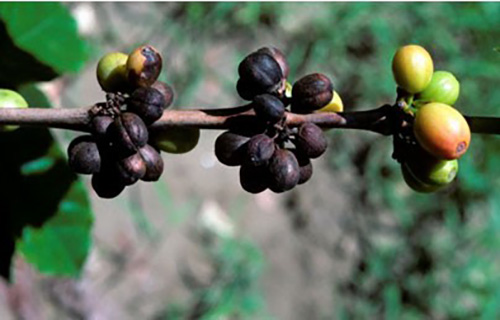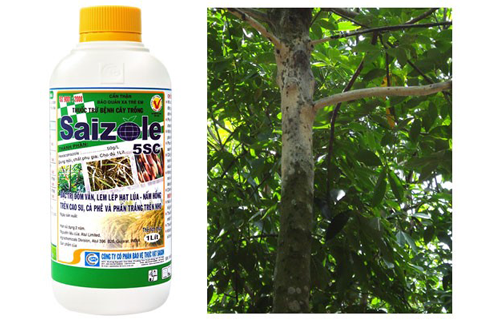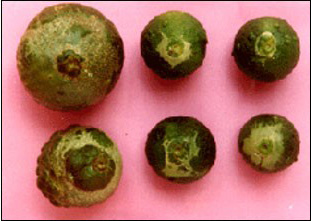|
Specialized Herbicide To Control Weeds On Sesame Plants
11/08/2021
BSc Tran Thanh Tin Broadsafe 200EC contains active ingredient of Quizalofop-P-Ethyl 200g/l which is an internal, selective, high-potency herbicide that does not affect plant growth, affects weeds in the post-emergent stage, is a advanced product to determine the first victory when sowing, affirming the superiority of highly effective weeding Broadsafe 200EC is a special treatment for annual and perennial narrow-leaved weeds belonging to poaceae that is very safe for broadleaved crops such as: soybeans, peanuts, sesame, yams etc... At the sesame field planted in rotation on Mr. Chinh is rice field in My Hoi commune, Cao Lanh district, Dong Thap province, spraying with Broadsafe 200 EC herbicide 12 days after sowing, the results are evaluated as follows: 05 days after spraying, over 85% of weeds started to wilt and die, after 7 days of spraying, over 90% of weeds were dead, while the cycads were still growing, growing normally with no signs of being affected by herbicide. Broadsafe 200EC is an internally-absorbed and systemic herbicide. When spraying Broadsafe 200EC on sesame fields, the product will penetrate deeply into the leaves of weeds, weedy rice, enter the conductive vascularity and then systemize it into the weed root system. All root systems will be destroyed when being exposed to the product, the nodes of weed and weedy rice stems will be rotten and broken apart after 7 days of spraying. According to Mr. Chinh is experience, if spraying Broadsafe 200EC at the stage when the weed is 3-8 leaves, it will give the highest efficiency with a dose of 20ml / 20-liter- watertank (0.4 liters / ha), spray 02 tanks for 1,000 m2. If spraying is delayed 25 days after sowing, and the weed has more than 10 leaves, use a higher dose of 30ml/ 20-liter-watertank (0.6 liters/ha), spray 02 tanks for 1,000 m2. Outstanding advantages of Broadsafe 200 EC herbicide: - Highly systemic, internally-absorbed characteristics (spray after 1 hour if there is rain, no need to spray again). - Specializes in the elimination of narrow-leaved weeds that belongs to poaceae (Monocotyledon) - Resistant to washout. - Very safe for broadleaved crops. - Environmental protection, low toxicity, high herbicide ability. Some notes when using Broadsafe 200 EC herbicide: - Do not use on narrow-leaved crops such as: Rice, corn, sugarcane, etc. - Do not mix with turbid water, water contaminated with alum, only used to eliminate weeds on upland crops. Fig: The effect of the product causes partial rot and yellowing wilt after 4 days of spraying Fig: After 7 days of spraying, the weeds died almost completely |
To prevent, in addition to plowing and burying weed seeds, collecting weed stalks and stumps left after tilling the land to burn, not letting weeds produce seeds in production fields, etc., the use of chemical products is still a measure. optimal because of its ability to thoroughly kill weeds, reduce labor and take advantage of more time than manual weeding.
Miner has the scientific name Phyllocnistis citrella Staint., family Phyllocnistidae, order Lepidoptera. The miner occurs in many countries in the tropics and subtropics. The main host of the miner is the citrus family - Rutaceae. In addition, the miner also attacks mangosteen and some other plants.
Adult is a small planthopper, with a body 2-3 mm long, the whole body is ash gray, slightly greenish, the wings are opaque with many small brown spots.Eggs are oval, 0.3 mm long, have a pointed end and are attached directly to the leaf surface, leaf axils.
Green bugs specialize in the fruit of citrus groups (oranges, tangerines, lemons, grapefruits, kumquats...), some people call them orange bugs, or orange suckers. Their scientific name is Rhynchocoris poseidon or Rhynchocoris humeralis.
In Vietnam, yellow leaf curl disease is very common on papaya trees, especially the disease is often severe in areas of high and continuous planting, areas with hot and arid climates. The disease has significantly reduced the yield and quality of papaya. Gardens that are infected early when the plants are young may not yield. However, up to now, many gardeners still do not know the cause and how to fix it.
Spider mites are common pests on citrus trees, especially in hot and dry climates that are suitable for spiders to grow and cause severe damage.The group of harmful spiders is usually very small in size, unlike the natural enemy spiders.
This group includes species that are generally very small in size, causing damage by sucking plant sap (on leaves, fruits, branches, stems).
There are many species of mealybugs present on the group of Oranges,Tangerines,Grapefruits and Lemons (Citrus), which can be divided into 2 groups:
+ Group of sticky mealybugs with common varieties such as Lepidosaphes, Aonidiella, Coccus and Saissetia.
+ Group of flower mealybugs with common genera and species such as Pseudococcus, Planococcus and Icerya purchasi.
Dry branches and berries disease often appear to be common damage on coffee gardens during the rainy season. The disease causes death of branchs, dry fruit, severely affects the canopy structure and coffee yield if not paid attention to prevention.
Pink disease commonly causes diseases on rubber plantations in the rainy season, especially on garden from 4-8 years old. This year, rubber has to go through a period of severe drought, weakening the tree, so now in tnshe rainy season it is easy to get infected. Therefore, it is necessary to pay attention to good management to avoid affecting the garden.
In recent years, the area of citrus has been expanded because it is a fruit tree with high economic efficiency. However, in order to sell at a high price, not only in quality but consumers also require the external beauty of the fruit, so pest management on citrus is a matter of great concern to farmers. The hot season is a favorable condition for thrips to develop and cause damage, affecting the commercial value of fruit.
- Headquarters
- SAIGON PLANT PROTECTION JOINT STOCK COMPANY
- RQ 1, Nguyen Van Quy St., Tan Thuan Ward, HCM City
- Tax code: 0300632232
- Tel: (028) 38 733 295 - 38 732 077
- Fax: (028) 38 733 003 - 38 733 391
- Website: www.spchcmc.vn - Email: info@spchcmc.vn
- SAIGON PLANT PROTECTION COMPANY
- SAIGON PLANT PROTECTION JOINT STOCK ENTERPRISE
- Lot C1-C3 Hiep Phuoc Industrial Park, Hiep Phuoc Commune, HCM City
- Tel: (028) 3873 4089 - Fax: (028) 3873 4086
- Affiliated Unit
-
- Quick Links
- Home
- About us
- Career Opportunities


